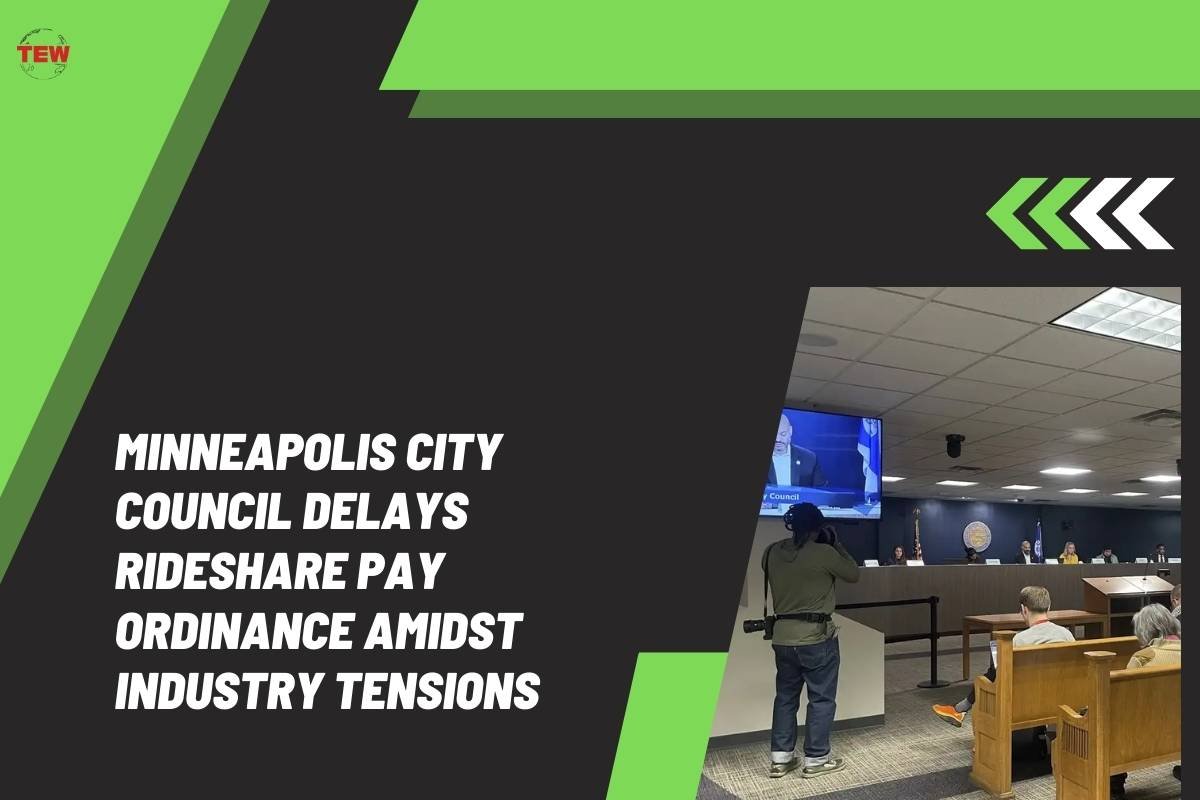(Source-Trisha Ahmed _ AP)
The Minneapolis City Council made a decisive move on Thursday to postpone the enforcement of a new ordinance mandating increased pay for rideshare drivers by a period of two months. This delay comes as a temporary measure to prevent rideshare giants Uber and Lyft from withdrawing their services from the city, a threat they had issued should the ordinance be implemented.
In a unanimous decision, council members opted to reevaluate the ordinance in response to mounting pressure from rideshare companies, disability advocates, and concerns raised by the business community.
Council Member Katie Cashman explained that the proposal to postpone the ordinance’s implementation from May to July stemmed from discussions with state lawmakers who are in the process of advancing a statewide ordinance aimed at raising rates and providing enhanced protections for drivers. Cashman emphasized that the amendment aims to allow for a more pragmatic timeline to continue the legislative process, while concurrently engaging in ongoing collaboration with state officials regarding the formulation of a comprehensive statewide policy.
Council Responds to Pressure from Rideshare Companies and Advocates
Highlighting the council’s efforts to mitigate potential disruptions in rideshare services, Cashman underscored their commitment to exploring partnerships with new rideshare companies and promoting public transit alternatives. While a city spokesperson revealed that four other rideshare companies have applied for licenses, none have received approval yet.
The Minneapolis ordinance stipulates a minimum rate of $1.41 per mile and $0.51 per minute, or a minimum fare of $5 per ride. It also includes provisions directing a portion of certain fees, such as those for ride cancellations, to be allocated to drivers.
Council Member Jamal Osman, an original proponent of the ordinance, reiterated the imperative of protecting drivers, asserting that the extension demonstrates the council’s good faith in addressing their concerns. Despite the extension, Osman acknowledged the lingering uncertainty surrounding the potential departure of Uber and Lyft, underscoring the city’s dependence on these companies and the need for diversification in the rideshare market.
Uber spokespersons indicated that the extension until July would defer any cessation of services in the city until then. Both Uber and Lyft have vehemently opposed the rates proposed in the Minneapolis ordinance, arguing that they would render rideshares unaffordable for the majority of riders.
Debate Continues Over Impact on Drivers and Riders as Implementation Postponed
Efforts to rescind the ordinance by Council Member Linea Palmisano were met with a vote of 10-3 against. Similarly, a proposed amendment to decrease the rates paid to drivers was also voted down by a margin of 10-3.
Despite the postponement, Lyft spokesperson CJ Macklin reiterated concerns over the sustainability of the ordinance’s provisions, asserting that it would ultimately lead to diminished earnings for drivers and render operations in Minneapolis untenable.
Mayor Jacob Frey expressed continued skepticism regarding the ordinance, emphasizing the need for a comprehensive solution to address the concerns of both drivers and riders.
Additional amendments proposed by Council Member Robin Wonsley, requiring detailed receipts for both riders and drivers and mandating rideshare companies to provide regular data reports to the city, are expected to be voted on next month.
While supporters of the ordinance advocating for higher pay for drivers faced setbacks last year due to a gubernatorial veto, legislative efforts are underway in the state Legislature to address these issues.





